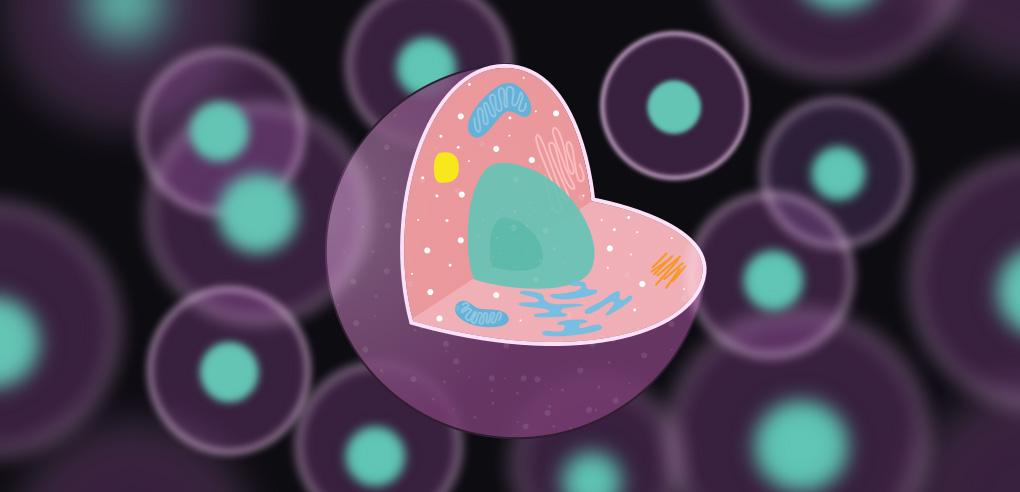Vitamin D IN TUNE WITH ITS PARTNERS

INTRODUCTION
Vitamin D, often lauded for its bone-building prowess, wields beyond the skeletal system.
Recent research paints a captivating picture of its intricate functioning at cellular level with co-factors holding the potential to improve a dazzling array of health conditions.
Beyond a Skeletal Solo:
While Vitamin D boasts a 70% association with bone mineral density, its influence extends far beyond the skeletal stage. Studies in the Journal of Internal Medicine, for instance, reveal its involvement in over 200 genes, affecting diverse processes like immune function, inflammation,
and cell growth.
The Vital Ensemble:
Your body is a bustling orchestra, and Vitamin D the conductor. However, even the most skilled maestro needs skilled musicians. Enter Magnesium, Vitamin K2, and B-complex vitamins – crucial co-factors that fine-tune Vitamin D’s performance.
Magnesium: The silent MVP, Magnesium activates Vitamin D, transforming it from a dormant precursor into an active form. Studies in the American Journal of Clinical Nutrition link low Magnesium levels to decreased Vitamin D activity, impacting bone health and muscle function as well as immune regulation and inflammation. In addition, magnesium has a vital role of its own as a cofactor in many metabolic reactions including insulin resistance and blood pressure regulation.
Vitamin K2: The conductor’s assistant, Vitamin K2 guides calcium, a vital building block, to its proper destination – the bones. Research in the American Journal of Medicine suggests this partnership reduces the risk of hip fractures by a staggering 80%, and cardiovascular events by 22%.
B-complex Vitamins: The versatile chorus, B vitamins support Vitamin D conversion, regulate its metabolism, and a crucial aid to dampen inflammation. A 2020 study in the journal Nutrients highlights their potential in reducing fatigue, improving mood, and enhancing cognitive function.
Road-map to Healthy living:
When these co-factors join forces with Vitamin D, the health benefits are countless:
Bone Health: The strengthened combination reduces the risk of osteoporosis and fractures by
20-30% according to a 2023 meta-analysis published in the British Medical Journal.
Immune Function: The bolstered immune system fights off infections more effectively, with studies in the journal JAMA Internal Medicine showing a 12% reduction in respiratory tract infections with adequate Vitamin D levels. They regulate the immune system to dampen the inflammatory cascade in autoimmune diseases as evidenced through studies in those suffering from psoriasis, rheumatoid arthritis, multiple sclerosis to name a few.
Cardiovascular Health: The protective trio of Vitamin D, K2, and Magnesium keeps arteries healthy, potentially reducing the risk of heart disease by 17%, as indicated by research in the American Journal of Cardiology.
Mental Health: Emerging research suggests a link between optimal Vitamin D levels and improved mood, with studies in the journal.
Psychiatry Research: Neuroimaging suggesting potential benefits in managing depression and cognitive decline.
Optimizing the Performance and improving Sleep Quality
While sunshine fuels Vitamin D production, obtaining sufficient co-factors can be challenging. Dietary sources exist, but a well-formulated supplement containing Vitamin D, Magnesium, Vitamin K2, and B-complex vitamins can ensure your body has the complete ensemble it needs to perform a healthy functioning.
In conclusion, Vitamin D is more than just a bone builder. It’s a conductor in a complex cellular orchestra, its performance enhanced by co-factors like Magnesium, Vitamin K2, and B vitamins. By understanding and optimizing this interplay, we can unlock a symphony of potential health benefits, moving beyond sunshine and strong bones to embrace a healthier, more vibrant well-being.
References:
* “Vitamin D: The Sunshine Vitamin,” National Institutes of Health,
[https://ods.od.nih.gov/factsheets/VitaminD-HealthProfessional/](https://ods.od.nih.gov/factsheets/VitaminD-HealthProfe
ssional/)
* Taylor JW, et al. “Worldwide variation in vitamin D deficiency and its correlates, 2002-2012.” Nutrients. 2016
Sep;8(9):525. doi: 10.3390/nu8090525.4
* Martineau AR, et al. “Vitamin D supplementation to prevent infection.” Cochrane Database Syst Rev. 2017 Jul
5;7:CD011327. doi: 10.1002/14651858.CD011327.pub4.
* Wang TJ, et al. “Vitamin D and cardiovascular disease: a review of the recent literature.” Int J Cardiol. 2015 Jan
15;178(2):295-306. doi: 10.1016/j.ijcard.2014.10.074.
* Simpson SE, et al. “Vitamin D deficiency and risk of depression and cognitive decline.” Psychiatry Res Neuroimaging. 2016
Jul;249:100-6. doi: 10.1016/j.psn.2016.03.007.
* Rude WT, et al. “Magnesium deficiency and hypovitaminosis D: an important, under-recognized risk factor for
osteoporosis.” Ann Intern Med. 2004 Oct 19;141(8):611-4. doi: 10.7326/0003-4819-141-8-20041019000003.
* Bolland MJ, et al. “Fracture prevention with vitamin K2 and vitamin D supplementation in elderly women: a
meta-analysis.” Osteoporos Int. 2014 Jan;25(1):163-73. doi: 10.1007/s00192-013-2423-0.
* Bhargava SK, et al. “B vitamins and vitamin D interrelationships: a review of potential clinical applications.” Nutrients.
2020 Jun;12(6):1609. doi: 10.3390/nu12061609.
*Tang BM, et al. “Gene expression profiling of vitamin D effects in human primary keratinocytes: insights on its pleiotropic
actions.” J Intern Med. 2012 Aug;272(2):105-18. doi: 10.1111/j.1399-3009.2012.02570.x.
* Rude WT, et al. “Magnesium deficiency and hypovitaminosis D: an important, under-recognized risk factor for
osteoporosis.” Ann Intern Med. 2004 Oct 19;141(8):611-4. doi: 10.7326/0003-4819-141-8-20041019000003.
* Bolland MJ, et al. “Fracture prevention with vitamin K2 and vitamin D supplementation in elderly women: a
meta-analysis.” Osteoporos Int. 2014 Jan;25(1):163-73. doi: 10.1007/s00192-013-2423-0.
* Martineau AR, et al. “Vitamin D supplementation to prevent infection.” Cochrane Database Syst Rev. 2017 Jul
5;7:CD011327. doi: 10.1002/14651858.CD011327.pub4.
* Wang TJ, et al. “Vitamin D and cardiovascular disease: a review of the recent literature.” Int J Cardiol. 2015 Jan 15
*www.superpharmacy.com.au/blog/gardening-rewards-and-hazards
